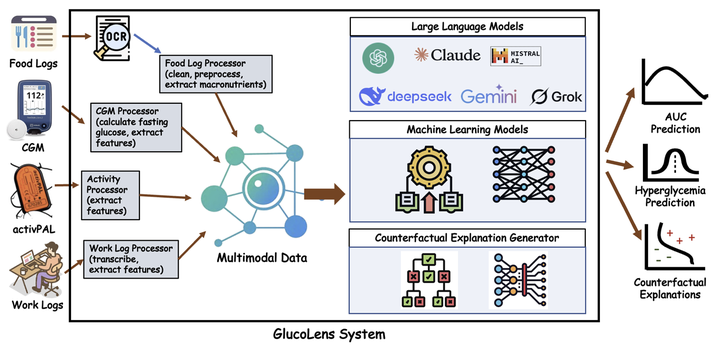LLM-Powered Prediction of Hyperglycemia and Discovery of Behavioral Treatment Pathways from Wearables and Diet

Abstract
Postprandial hyperglycemia, marked by the blood glucose level exceeding the normal range after consuming a meal, is a critical indicator of progression toward type 2 diabetes in people with prediabetes and in healthy individuals. A key metric for understanding blood glucose dynamics after eating is the postprandial area under the curve (AUC). Predicting postprandial AUC in advance based on a person’s lifestyle factors, such as diet and physical activity level, and explaining the factors that affect postprandial blood glucose could allow an individual to adjust their lifestyle accordingly to maintain normal glucose levels. In this study, we developed an explainable machine learning solution, GlucoLens, that takes sensor-driven inputs and uses advanced data processing, large language models, and trainable machine learning models to predict postprandial AUC and hyperglycemia from diet, physical activity, and recent glucose patterns. We used data obtained from wearables in a five-week clinical trial of 10 adults who worked full-time to develop and evaluate the proposed computational model that integrates wearable sensing, multimodal data, and machine learning. Our machine learning model takes multimodal data from wearable activity and glucose monitoring sensors, along with food and work logs, and provides an interpretable prediction of the postprandial glucose pattern. Our GlucoLens system achieves a normalized root mean squared error (NRMSE) of 0.123 in its best configuration. On average, the proposed technology provides a 16% better performance level compared to the comparison models. Additionally, our technique predicts hyperglycemia with an accuracy of 73.3% and an F1 score of 0.716 and recommends different treatment options to help avoid hyperglycemia through diverse counterfactual explanations. Code available: https://github.com/ab9mamun/GlucoLens.